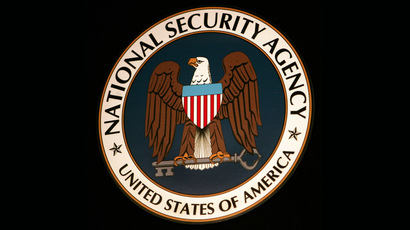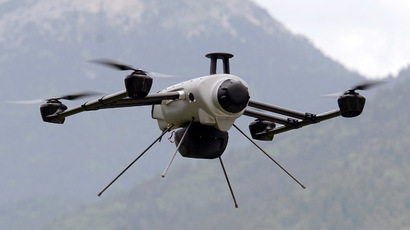NSA paid British spy agency $150 mln in secret funds – new leak
The NSA has made hush-hush payments of at least $150 million to Britain’s GCHQ spying agency over the past three years to influence British intelligence gathering operations. The payouts were revealed in new Snowden leaks published by The Guardian.
The documents illustrate that the NSA expects the UK’s Government
Communications Headquarters, known as GCHQ, to act in its
interest, expecting a return on the investment, The Guardian
said Thursday.
Redevelopments at GCHQ’s site at Bude in southwest England, which
alone cost over $20 million, were paid for by the US National
Security Agency. The facility intercepts information from
transatlantic cables carrying Internet and communications
information.
The revelations appear to contradict previous denials from British government ministers that GCHQ does the NSA’s “dirty work.” In addition, the latest Snowden dossier details how British surveillance operations could be a “selling point” for the US.
A document from 2010 cited by The Guardian reveals the nature of the relationship between the two organizations, stating that the US “raised a number of issues with regards to meeting NSA's minimum expectations” attesting that GCHQ “still remains short of the full NSA ask.”
The documents declare GCHQ’s intent and the extent to which it
wants to harvest phone data and Internet traffic, aiming to
“exploit any phone, anywhere, any time.”
The daily also reveals the sheer volume of data Britain has
increasingly gained access to. Over the past five years, the
quantity of available Internet and mobile traffic has increased
by 7,000 percent. However 60 percent of UK refined intelligence
is still provided by the NSA.
In the course of providing the documents, Snowden repeatedly told the paper that “It’s not just a US problem” and that GCHQ is “worse than the US.”

Apparently, the British spy agency blamed Russia and China for the overwhelming majority of cyberattacks against the UK and is set on developing new technologies alongside the NSA with the aim of increasing their cyberwarfare capability, according to the report.
Documents detail how the NSA provided GCHQ with $34.8 million in
2009 and $60 million in 2010, with the 2010 sum including $6
million in GCHQ support for NATO forces in Afghanistan. In
2011/12 the NSA paid a further $52.8 to GCHQ.
The leaks show that Britain fears that “US perceptions of the…
partnership [could] diminish, leading to loss of access, and/or
reduction in investment… to the UK.”
Snowden’s leaks informed the public in June that British spy
agency GCHQ has tapped into the global network of communications,
storing calls, Facebook posts and internet histories. He detailed
how it shares the data with the NSA.
The documents showed that alongside managing 600m phone
“events” a day, GCHQ had tapped into over 200 fiber-optic
cables and had the capacity to analyze data from over 46 of them
at a time. The operation, codenamed “Tempora,” had been going on
for around 18 months at the time of the documents’ release.
The cables have the capacity to carry data at 10 gigabits per
second, which in theory, means they could deliver up to
21petabytes of information per day. The program is continuing to
develop on a daily basis.
Edward Snowden finally left Moscow’s Sheremetyevo airport on
Thursday, having been granted temporary asylum in Russia after
arriving –initially just in transit – in Moscow on June 23.
Snowden’s departure took place some 30 minutes before his new
refugee status was officially announced.














